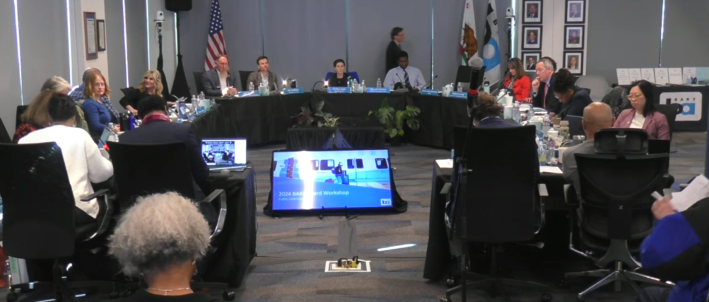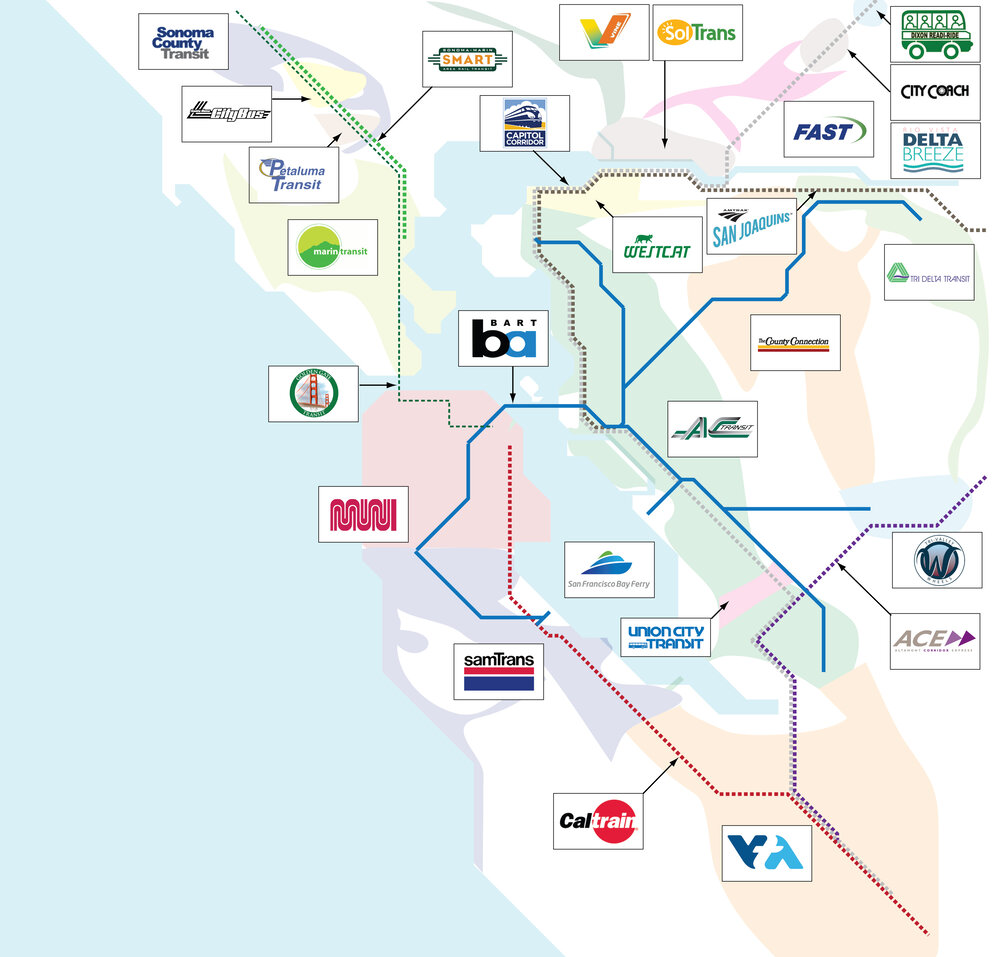The BART Board of Directors invited a panel of advocates and experts to its regular Thursday meeting to discuss what it would take to get a regional transit funding measure approved by voters.
"The way we conceive of transit has to change," said Alicia John-Baptiste, President/CEO of SPUR and one of the panelists. She opined that traditional, pre-pandemic commute patterns will not return. "We probably won’t have a five-day, in-office work day for most people."
The panel was billed as an "opportunity for the BART board, BART employees, news media, and members of the public to hear a variety of perspectives about what transit operators need to do in the next 30 months to achieve a successful transportation measure in 2026, including improvements to the customer experience and policy reforms." It was moderated by Karen Philbrick of the Mineta Transportation Institute at San Jose State University.
"Every transit agency is facing a major structural deficit. What frustrates me is how this is presented as a unique problem that car infrastructure doesn’t also have," said Darrell Owens, Policy and Data Analyst and advocate with the East Bay Transit Riders Union. "Caltrans has a deficit. I’m tired of subsidizing automobile users and then being told my infrastructure isn’t efficient."
Transit is efficient, it has just always been severely underfunded, both operationally and in terms of reach. The whole point of a funding measure would be to try and correct that. But to get voters to approve a tax measure, BART and its sister transit agencies are going to have to work hard at convincing people that more money will actually improve service enough to motivate people to leave their cars at home (or go car-free).
BART ridership has tracked nearly exactly with Bay Area office occupancy since beginning of pandemic.
— Rebecca Saltzman (@RebeccaForBART) February 8, 2024
While 72% of pre-pandemic riders have returned to BART, only 43% of trips returned.
Bay Area has changed. We need long term operating $ to continue robust transit service. pic.twitter.com/SkAtIEGhNH
The best way to do that is by starting to make tangible improvements and adapting to current transportation needs before going to the ballot box.
Fortunately, not all improvements take gobs of money.
"Improvements will inspire people to vote for a better system," said Ian Griffiths, Co-Founder and Policy Director, Seamless Bay Area, who was also on the panel. "Things like coordinated fares and schedules, the cheapest things to do, are also the most motivating."
"Let’s consider the 27 agencies we have as a huge asset," he added. "But how can we organize that talent and that asset effectively?" Griffiths talked about the trip he and other advocates and officials took to Switzerland, where a "network manager" handles ticketing and makes all the country's disparate transit operators appear as a single, unified system. Seamless, of course, wants that model replicated in the Bay Area. "Moving towards using a network manager here will help us build the trust of riders," he said.
Integrated transit is necessary, but several panelists pointed out that many riders are deterred by something much more mundane: the perception that BART and other transit agencies' systems aren't safe. "Show the general public that you can get a safe, clean transit system and it will just blossom into getting those measures passed," said Jeff Shaffer, President/Business Agent, Local 1277, Amalgamated Transit Union (ATU).

Of course, BART has been making great strides in the right direction, rolling out new trains, expanding visible safety patrols, developing new fare gates to secure the system, and redoubling cleaning efforts. "This has made a huge difference in changing the perception of the BART system," said Emily Loper, Vice President of Public Policy at the Bay Area Council. "Last year we polled current and former BART riders and the top things they both wanted to see was more BART officers, better enforcement of the passenger code of conduct." She said the decision to run shorter trains more frequently and to remove the old, grungy trains from service also did wonders to attract riders. "We have to convince non-transit users that we’re on the right track."
The panel also addressed the asphalt elephant in the room: whether including money for highway widening would be necessary to get a measure passed across nine counties.
"We are really promoting a balanced expenditure, that also has road and highway improvements," said Loper.
Of course, such a suggestion was anathema to advocates such as Owens and some members of the BART board, considering decades of over-expenditure on road widening while transit was left to fester. But the panelists started working out a compromise, exploring ways to make a regional measure beneficial even to far-flung suburbs that don't currently have rail service. Owens and Griffiths suggested including funds for regional express bus services that connect to BART without additional charges. They also want to see buses that don't cater just to single counties. "And don’t penalize them with an additional bus fee" when they transfer to and from BART and other agencies, added Owens. Several pointed out that road improvements can also mean protected bike lanes, bulb-outs, wider sidewalks, and other pedestrian safety measures.
But getting support from two-thirds of voters will still be a challenge, and it would be necessary if a measure is put to the vote. Griffiths suggested that advocates should start working on a signature-gathering campaign, run by private citizens. A citizen-led ballot measure currently requires only a majority of voters to approve it. "We need to focus on how we can reduce the voter threshold, so the measure will require a simple majority," he said.





